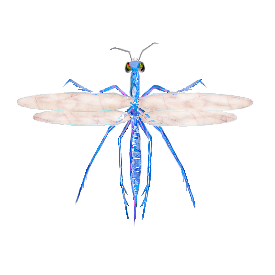Cicada hawk wasp
From Wikimalia
(Difference between revisions)
(re-posting) |
|||
| (4 intermediate revisions not shown.) | |||
| Line 1: | Line 1: | ||
{{Collection-Bugs | {{Collection-Bugs | ||
| - | |image= | + | |image=Cicada Hawk Wasp.png |
| - | |name= | + | |name=Cicada Hawk |
| - | Cicada Hawk | + | |habitat=Temperate forests. |
| - | |habitat= | + | |description=This pale bluish wasp is slender and sleek like many of its relatives, but has six overlarge legs, perhaps in order to better perch upon larger prey. Its wings do not fold parallel along its back as is so with its cousins, and its rear segment can deliver an upward sting as well as the traditional downward variety. The stinger doubles as an ovipositor. |
| - | |description= | + | Its ovoid head is articulated from a short neck, and two active antennae jut out from just above its recessed eyes. It has short mandibles and a needle-like proboscis placed quite closely together. |
| - | + | |notes=This wasp lays its eggs in live [[Holymna cicada|Holymna Cicadas]]. Upon hatching, they feed upon the cicada, and at times, upon the mother's corpse. | |
| - | |notes= This wasp lays its eggs in live Holymna Cicadas. | + | |
}} | }} | ||
| + | The prey of this wasp rarely seems to struggle, although the exact reason is not known. | ||
| + | |||
| + | {{stub}} | ||
| + | Back to the [[Insect/Arachnid]] page. | ||
Current revision
| The Bug Collection | ||||||||
|---|---|---|---|---|---|---|---|---|
|
| ||||||||
| ||||||||
The prey of this wasp rarely seems to struggle, although the exact reason is not known.
This article is a stub. You can help Wikimalia by expanding it.
Back to the Insect/Arachnid page.

